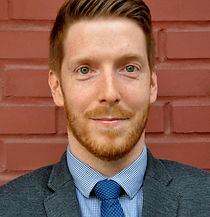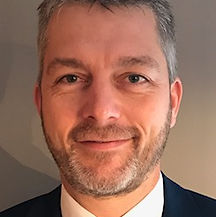OVERVIEW OF THE DAY
8:30 a.m. to 9:30 a.m. ET VIDEO CONFERENCE
Renewable energies and decarbonization: what energy cocktail for Canada?
12:00 p.m. to 12:45 p.m. ET VIDEO CONFERENCE
COP-27 debriefing session
1:00 p.m. to 2:30 p.m. ET VIDEO CONFERENCE
Comm and COP: Mobilize for maximum impact
3-4:30 p.m. ET VIDEO CONFERENCE
Where are we with Quebec's commitment to the end of hydrocarbons?
8:30 a.m. to 9:30 a.m. ET VIDEOCONFERENCING
Renewable energies and decarbonization: what energy cocktail for Canada
It is no secret that the burning of fossil fuels is the main cause of climate change. While the issue of decarbonization and energy transition has been a consensus in the scientific community to fight climate change for many years, the Parties to the COP have yet to agree on a comprehensive and common strategy to achieve a carbon neutral world. Join us on this panel to better understand how Canada's energy situation poses a challenge to meeting its international climate commitments, but also what are the best avenues to get there.

Simon Langlois-Bertrand
Professor of political science at Concordia University and associate researcher at the Trottier Energy Institute at Polytechnique Montréal

Genevieve Gauthier
National Director – Strategic Innovation at Econoler

Alexandre Gajevic Sayegh
Alexandre Gajevic Sayegh works on climate policies and just transition in Canada. His current research focuses on climate change policy, energy transition, carbon pricing and green economy. Previously, he was a postdoctoral researcher in the Department of Political Science at McGill University. Between 2016 and 2018, he held positions at Yale University as a postdoctoral fellow at the MacMillan Center for International and Area Studies and a lecturer in the Department of Political Science. He holds a PhD from University College London.
12:00 p.m. to 12:45 p.m. ET VIDEO CONFERENCE
November 11 debriefing
We find our team on site in Egypt for a report on this fifth opening day, which aims to welcome leaders from around the world to the Conference of the Parties to present high-level ambitions and actions with a view to maintain a 1.5°C threshold within reach, adapt to protect communities and natural habitats and mobilize funding. These sessions will certainly see the emergence of new collaborations and strategies mobilization of members of civil society. They make it possible to ensure greater transparency between the “in camera” discussions of the negotiators and the rest of the population, in addition to reducing the risk of a gap between the discourse and the international commitments of those elected and their practices.
1:00 p.m. to 2:30 p.m. ET VIDEO CONFERENCE
Comm and COP: Mobilize for maximum impact
After a busy week of negotiations at COP27, the Climate Communication Community of Practice is gathering to lay the groundwork for post-CPD mobilization. Come and talk with climate negotiation experts and experienced mobilizers to identify the communication angles and engagement strategies that will mobilize people in the aftermath of the COP!

Philippe Simard
Strategies and public relations COPTICOM and lecturer at the School of Applied Politics at the University of Sherbrooke
Philippe Simard specializes in the areas of the fight against climate change, energy transition and international climate negotiations.
As an advisor at COPTICOM, Philippe relies on his expertise to carry out several analysis, strategic watch, writing and event planning mandates.
A graduate of a master's degree in applied political studies, Philippe also works as a researcher for the Group for Studies and Research on International Affairs and Quebec (GÉRIQ) and for the Integrated Center for Research in Environment, Health and Society (PIRESS). . He is also a lecturer and research professional at the School of Applied Politics of the University of Sherbrooke.
As part of these functions, he actively contributed to the establishment of a graduate micro-program on international climate negotiations at the University of Sherbrooke, and still contributes to the writing of several books, analytical notes and articles of a scientific nature on international ecopolitics, international climate negotiations and Quebec climate paradiplomacy.

Marie-Eve Leclerc
Project Manager, Mobilization at Équiterre
Passionate about the environment and people, Marie-Eve Leclerc has made sustainable development a principle of life that she applies on a daily basis. Over the past 10 years, she has worked with several environmental NGOs, dealing with awareness campaigns on climate change or sustainable mobility, the organization of eco-responsible events, or training and support. Convinced that the world can be changed one step at a time, she is involved in numerous citizen committees and environmental organizations on a voluntary basis. Her academic training in biology and agronomy and then, at the 2nd cycle, in agroforestry and integrated rural development, enabled her to respond to a curiosity and a need to understand living systems in order to have an overview and find solutions to complex problems. Marie-Eve Leclerc joined Équiterre in 2015 as project manager for special events and mobilization. In particular, it organized a symposium on local agriculture, the 2017 benefit race Changer le monde, as well as two marches for the climate, which each brought together 25,000 people in Quebec and Ottawa.

Chloe Tremblay Cloutier
Head of the Demain le Québec Network, David Suzuki Foundation
Chloé holds a bachelor's degree in actuarial science and a master's degree in international studies where she had the opportunity to take an interest in the issues of global food security and climate change. In 2019, she worked in environmental education in Bogotá, becoming familiar with the concepts of agroecology. Chloé finds herself fascinated by local action, the power to act of collective initiatives , the importance of living together and the influence of social movements. She finally joined the citizen mobilization team of the David Suzuki Foundation in 2020 and became responsible for the Réseau Demain le Québec project in 2022. The Réseau Demain le Québec today connects and supports more than 90 citizen groups across Quebec to make advance the socio-ecological transition in our communities. She is also interested in the practices of care and benevolence and in intersectional approaches.

Marie-Andrée Foucreault-Therrien
Coordinator of Mothers at the front and her allies in the Eastern Townships
3-4:30 p.m. ET VIDEO CONFERENCE
Where are we with Quebec's commitment to the end of hydrocarbons?
By joining the Beyond Oil Gas Alliance (BOGA) in November 2021 at COP-26, an international alliance of governments and stakeholders working together to facilitate the phase-out of oil and gas production, Quebec has chosen to build momentum for greater climate ambition. But how has this promise played out over the past year? How has the energy crisis linked to the war in Ukraine reinforced the shocks on global energy markets? What is the status of Bill 21, whose main objective is to put an end to the search for and production of hydrocarbons and to the public financing of these activities?

Nicolas Juneau
Director General of Hydrocarbons and Biofuels at the Ministry of Energy and Natural Resources
Holder of a bachelor's degree in biology and a master's degree in environmental sciences, Nicolas Juneau first worked in the university network and the private sector before joining the Quebec public service in which he has worked for eighteen years. year. Since March 2020, Mr. Juneau has acted as Director General of Hydrocarbons and Biofuels at the Ministry of Energy and Natural Resources, where he puts his experience and skills to work in order to develop an environment favorable to the deployment of the sector. Québec bioenergy company.

Eric Pineault
Professor in the Department of Sociology at UQAM, member of the UQAM Research Chair on Ecological Transition, of the Institute of Environmental Sciences and Associate Researcher at IRIS

Anessa Kimball
Member of the teaching staff with tenure in the Department of Political Science of Université Laval
Anessa Kimball (prof/iel) is a tenured faculty member in the Department of Political Science at Université Laval. Kimball is Director of the International Security Center (CSI) at the Graduate School of International Studies (ETI), Co-Director of the Canadian Network on Defense and Security (RCDS), Member of the Defense & Security Foresight Group, North American team. He obtained his doctorate in political science at the State University of New York–Binghamton, USA. His research focuses on the interrelationship between domestic politics and foreign policy, defense and security, US foreign policy and US elections, international cooperation, and the economics of defense and military procurement. Kimball directs two separate research projects on burden sharing in NATO and the institutional conceptualization of informal defense and security arrangements.

Emile Boisseau-Bouvier
Analyst, Climate Policy and Ecological Transition at Équiterre

Charles Bonhomme
Public Affairs and Communications Manager at the David Suzuki Foundation
Passionate about innovation and the environment; history and geopolitics; public relations and strategic communications in business, Charles Bonhomme joined the David Suzuki Foundation in April 2021. As public affairs and communications manager at the David Suzuki Foundation, Charles manages the outreach of the Foundation's projects and oversees the communications of the organization. Since joining the Foundation, he has developed his expertise in transportation and in strategies for mitigating and adapting to climate change. Charles sits on several coalitions in the transport sector and in several areas aimed at decarbonizing the province of Quebec.
Charles holds a Master's degree in Public and International Affairs from the University of Montreal, during which he completed an internship as a trade and environmental policy analyst with the Department of Global Affairs of the Canadian federal government.



